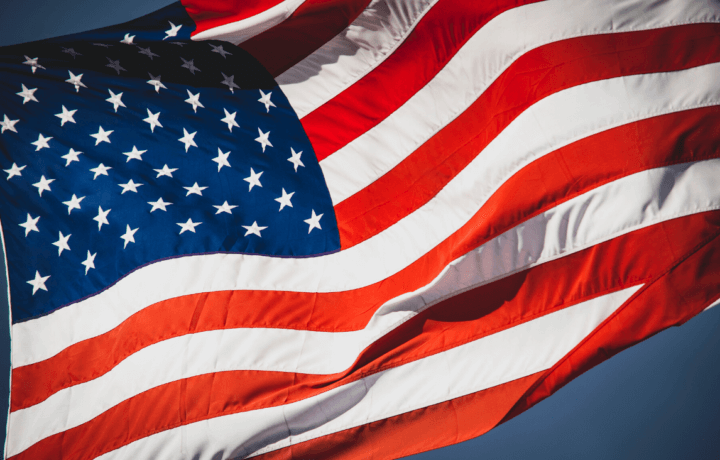The political divide in the United States is the greatest it has been – at least since the American Civil War. Yet, there is common ground in efforts to ensure that federal infrastructure projects are completed with American-made products and materials. That includes lumber, glass, drywall, and even fiber-optic cables.
Earlier this month, the Office of Management of Budget (OMB) proposed to revise its Guidance for Grants and Agreements, noting that the proposed revisions are limited in scope to support the bipartisan Build America, Buy America Act provisions of the Infrastructure Investment and Jobs Acts. It requires that funds made available for the financial assistance programs for infrastructure must use construction materials – such as iron, steel and wood – and end products are produced in the United States
This is essentially an update to a series of laws that date back to the 1930s – including the Buy American Act (BBA) that required the government to prefer America-made products whenever possible. In the decades that followed, there was a lot of room for exceptions and experts have noted that the laws were rarely enforced.
The former fact explains how the Lockheed Martin F-35 Lightning II fighter was able to get a past waiver to utilize Chinese-sourced magnets in its engine, while last year the Pentagon announced it wouldn’t accept new aircraft where the engine had Chinese magnets that hadn’t received the waiver.
It now appears that the government will seek to shore up the rules, and that was noted in the Inflation Reduction Act, which was signed into law last year. It included thousands of dollars in tax credits for people buying electric vehicles, but only if they’re made in North America.
Supporters of Buy American have long suggested that the policy promotes economic growth by ensuring that tax money spent to build the nation’s infrastructure and hardware used by government agencies – such as the F-35 – actually stays in the country. It has also been argued that it helps create high-quality blue-collar jobs at American factories.
Counterpoint to Buy American Act
Despite what the Buy American Act is meant to do, some economists warn it is actually a self-defeating policy that limits competition for government contracts. Even worse, the government may have to pay more for domestic materials that are of inferior quality to what can be sourced from abroad.
There is also a concern that the country’s infrastructure needs are so great that any rule that creates potential obstacles for builders.
Some think tanks have called out the legislation warning that the original Depression-era law was bad then, and is bad now. There are suggestions it comes at a cost of between $250,000 to more than $1 million per job saved, the Niskanen Center warned – while the Peterson Institute for International Economics (PIIE) had warned in 2017 that the law remains bad for exports, and results in taxpayers paying inflated prices for new infrastructure, the latest information technology and even for routine maintenance on that infrastructure.
Foreign Trade – Fair Trade?
Then there is the fact that key strategic partners in Europe and Asia have seen this as a policy that restricts opportunities for cooperation.
As the latter point, the same is true of many countries seeking to exclude foreign competition in supplying materials. The Government Accountability Office (GAO) noted in 1978, “It is inaccurate to conclude, however, that the United States is more restrictive than Great Britain, France, Germany, and Japan because of present buy-national legislation. These governments and nationalized industries also exclude most foreign competition when similar items are available domestically.
A case could also be made that this is really much ado about nothing, as a more recent GAO report also found that in 2018, less than five percent of products covered by the Buy American Act – equivalent to just $7.8 billion – were foreign-end products.
Is There Middle Ground?
There may be many political issues that have no middle ground, but Robert A. Sanders, Captain, JAG Corps, U.S. Navy (Retired), suggested this is a case where both sides can be right, but simply in slightly different ways.
“We already have issues with some rare minerals that we can’t get from anywhere else but from China,” Sanders, who is now a distinguished lecturer in the national security department at the University of New Haven, told ClearanceJobs. “We need to find our sources for those materials; and until that point, we have to find ways to allow it to be resolved with the Buy American Act.”
Sanders further suggested that the Buy American Act should be seen in the context of a national security issue, where we need not to see the limitations it places, but how those issues can be resolved. This could include not becoming dependent on a foreign nation – which may be a friend today, but less friendly tomorrow.
India’s relationship with Ukraine is such an example. New Delhi has refused to cut ties with Moscow, and while not an adversary, India is hardly an ally to Ukraine.
“We need to think of this in the context of an America first agenda,” added Sanders. “When it comes to national security, we do need to consider America first and foremost. That may also be those who say there are things we can’t do, so need to find a way so we can.”
The same could hold true for materials and end products.
“If the economists say we can’t source the materials overseas cost-effectively enough, then we should continue to be allowed to use foreign materials until we can find out how to source it cheaply domestically, and the same with products. Make them cheaper here,” said Sanders. “We can also cultivate an ally by buying their materials, but we should never put ourselves between a rock and a hard place. But right now, both sides seem ready to throw the baby out with the bath water.”




